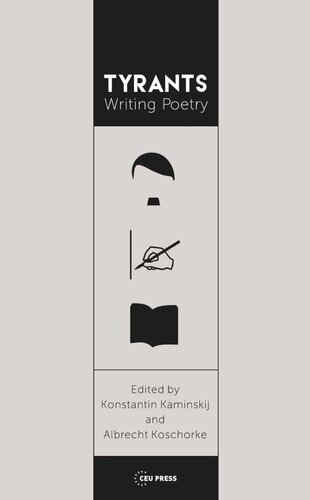

Most ebook files are in PDF format, so you can easily read them using various software such as Foxit Reader or directly on the Google Chrome browser.
Some ebook files are released by publishers in other formats such as .awz, .mobi, .epub, .fb2, etc. You may need to install specific software to read these formats on mobile/PC, such as Calibre.
Please read the tutorial at this link: https://ebookbell.com/faq
We offer FREE conversion to the popular formats you request; however, this may take some time. Therefore, right after payment, please email us, and we will try to provide the service as quickly as possible.
For some exceptional file formats or broken links (if any), please refrain from opening any disputes. Instead, email us first, and we will try to assist within a maximum of 6 hours.
EbookBell Team

4.4
72 reviewsWhy do tyrants - of all people - often have poetic aspirations? Where do terror and prose meet? This book contains nine case studies that compare the cultural history of totalitarian regimes. The essays focus not on the arts, literature or architecture but on the phenomenon that many of history's great despots considered themselves talented writers. By studying the artistic ambitions of Nero, Mussolini, Stalin, Hitler, Mao Zedong, Kim Il-sung, Gaddafi, Saddam Hussein, Saparmurat Niyazov and Radovan Karadzic, the authors explore the complicated relationship between poetry and political violence, and provide a fascinating look at the aesthetic dimensions of total power. The essays make an important contribution to a number of fields: the study of totalitarian regimes, cultural studies, and biographies of 20th century leaders. They underscore the frequent correlation between tyrannical governance and an excessive passion for language, and demonstrate that the combination of artistic and political charisma is often effective in the quest for absolute power.